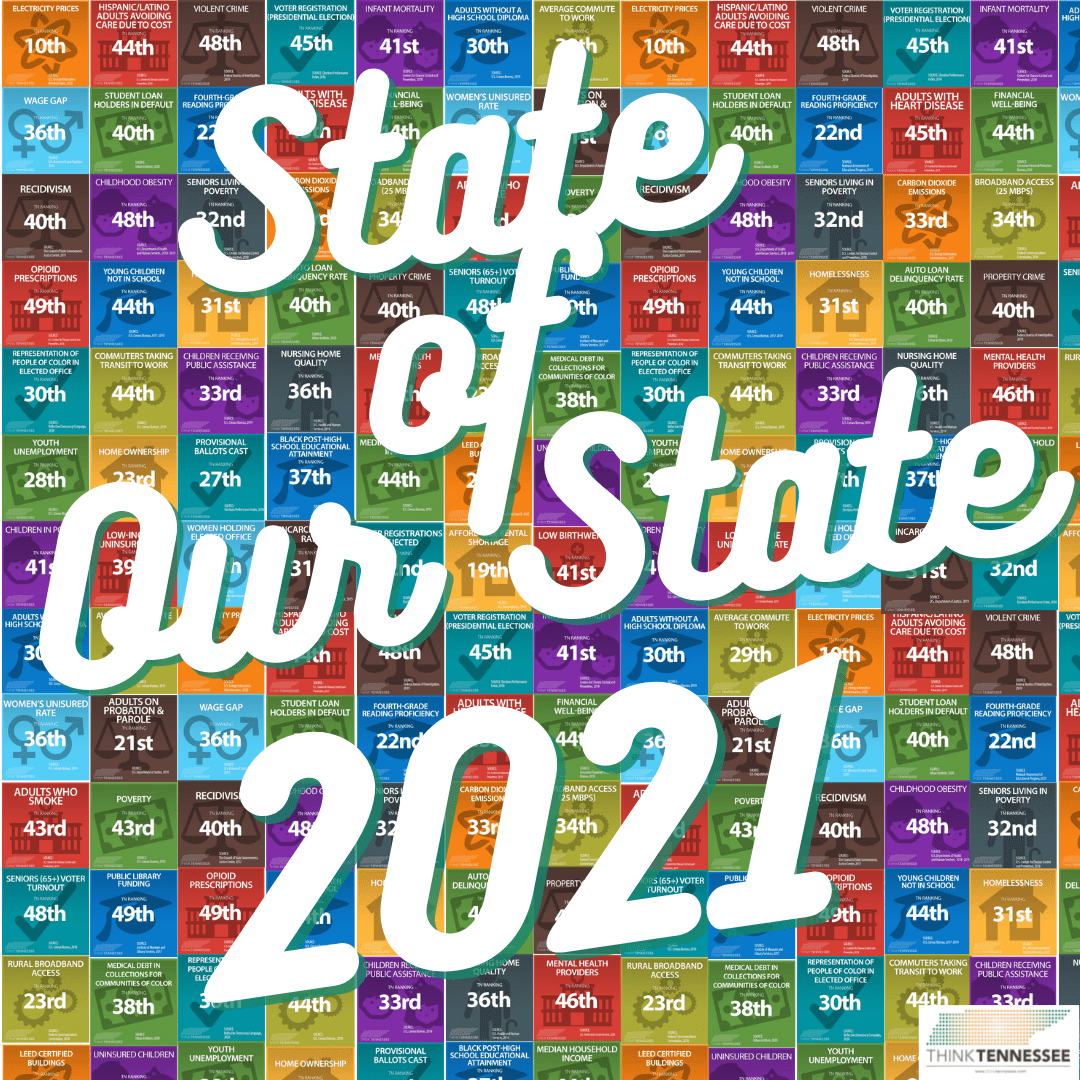New Research on the 2020 Election in Tennessee Finds Strengths, Points to Additional Opportunities to Further Fortify State’s System
Think tank’s four policy recommendations seek to address challenges highlighted in
frontline reports from Tennessee voters
NASHVILLE – More than a quarter of the over 800 calls Tennessee voters and would-be voters made to an election hotline last November were to ask questions about, and document challenges with, voter registration, according to a new report out today by ThinkTennessee.
The first-of-its-kind analysis draws on the Tennessee call logs processed by 866-OUR-VOTE, a national, nonpartisan election hotline operated by the Lawyers’ Committee for Civil Rights Under Law, as well as survey responses from 15 county election administrators.
The report offers a retrospective look at how election administration was adapted during the remarkably tumultuous election year, which included tornadoes, a pandemic and record voter turnout. Its findings highlight the state’s strengths, as well as opportunities for improvement.
“This first-of-its-kind report demonstrates that, for Tennesseans who were able to register to vote, our election system stood strong in the face of remarkable challenges,” said Shanna Singh Hughey, president of ThinkTennessee. “But many would-be voters didn’t cast a ballot because they struggled to navigate the voter-registration process. So the report should also serve as a road map for identifying future improvements, because particularly in a state that consistently trails in voter turnout, every vote counts.”
While ThinkTennessee’s research confirmed that Tennessee’s system worked well overall, it also highlighted areas where changes to public policy could streamline the voting process and further secure our elections. These opportunities for improvement are summarized in the report’s four recommendations:
- Expand the voter-registration window and streamline the voter-restoration process. Many Tennessee callers reported missing the 30-day registration deadline. Others were confused about Tennessee’s limited and complex voting restoration process. Policies like moving the voter-registration deadline closer to Election Day, implementing Same Day Registration and simplifying the restoration process could ease administrative burdens for election officials and help prevent would-be voters from missing their opportunity to cast a ballot.
- Allow absentee ballots to be delivered to election officials in person. Some callers reported questions about, and issues with, returning their absentee ballots. Absentee voters in Tennessee typically must return their ballot by Election Day and via mail. In 2020, Tennessee election officials allowed voters to deliver ballots to a dedicated post office in each county on Election Day. Most states, however, allow voters to deliver absentee ballots directly to election offices or polling places, a convenience that would have given Tennessee voters the certainty that their ballot had been received.
- Provide financial support to allow all counties to purchase voting machines that produce a voter-verified paper audit trail. A handful of callers reported their belief that voting machines initially selected a different candidate than they were attempting to select. Tennessee remains one of only six states primarily using electronic voting machines that do not produce a voter-verified paper audit trail. When voters have a paper “backup” to review before casting their ballot, they have added confidence that their vote is being cast as they intended. A “backup” also allows election officials to hand-count ballots in the event of a recount. The handful of states closely watched as election officials recounted ballots in 2020 were aided by having a physical, paper ballot to confirm vote counts, including Georgia, which used voting machines with paper backups for the first time.
- Focus voter-education efforts on ensuring every voter has the information they need to successfully participate. Most hotline callers sought information about the voter-registration process and where to find a polling place. Voting advocates focused on voter-registration efforts can help state and local election officials ensure that accurate information is shared so Tennessee voters are prepared for Election Day.





